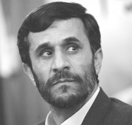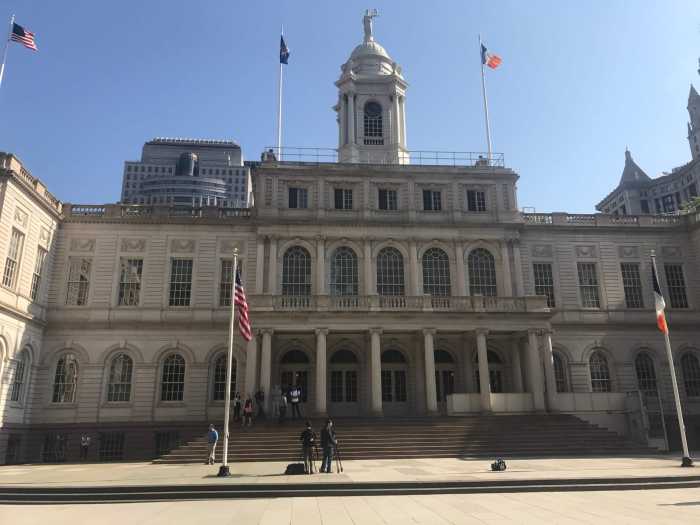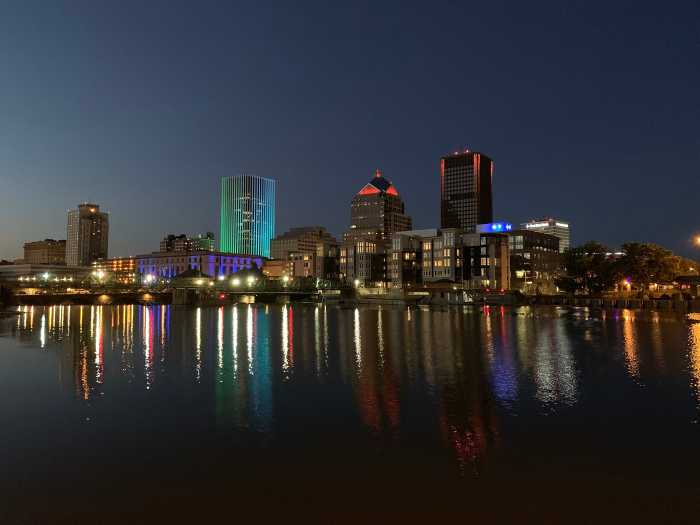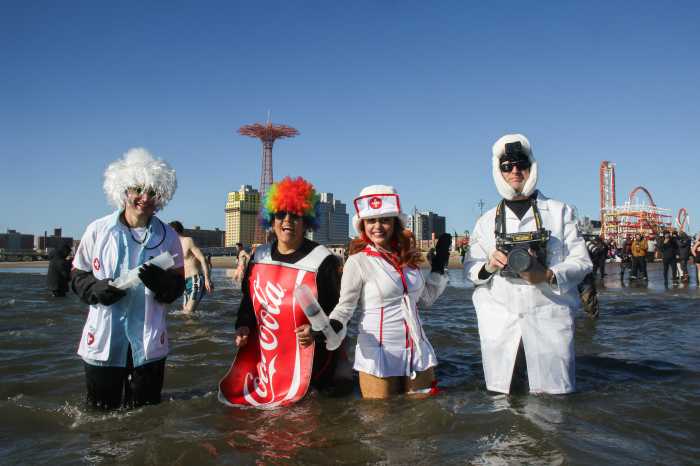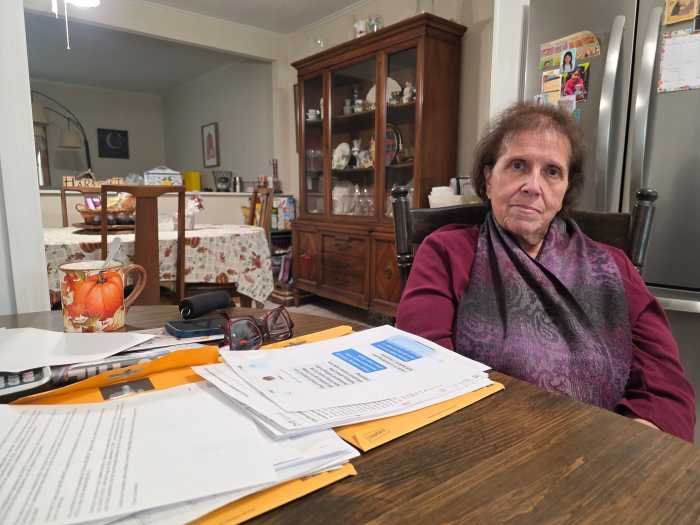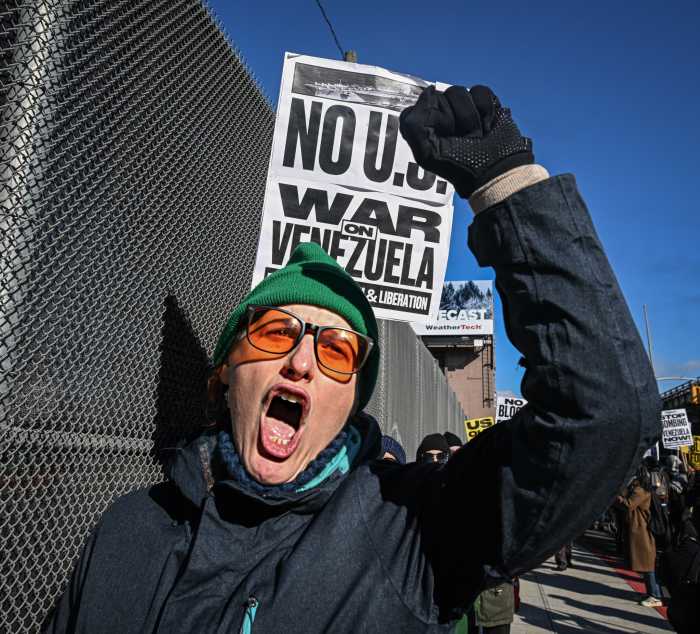Volume 5, Number 27 | July 6 – 12, 2006
HUMAN RIGHTS
Gay and Underground in Iran
Activist faces risk that “no physical sign of me will remain”
As lesbians and gays around the world prepare to commemorate the July 19 anniversary of last year’s hanging of two teenage gay boys in the Iranian city of Mashad, Gay City News, with the aid of a Persian translator, spoke with an underground gay activist with the Persian Gay and Lesbian Organization (PGLO) who lives in the Islamic Republic of Iran. We’ll call him Mani (a pseudonym) and, to protect his security, can identify his hometown only as a large Iranian city. He’s 24, has a doctorate in pharmaceutical medicine, and works as a technical manager in a pharmaceutical plant.
“I was born in Tehran in 1982,” said Mani. “My childhood was full of life’s ordeals. Until the age of seven, I lived with both my parents. But then my mother separated from us, leaving for the Czech Republic, and I felt lonelier. This made our lives more difficult. It was during the Iran-Iraq War [1980-88]. My father was a commander at the front and we were living with my father’s new wife.”
Mani has known he was gay since he was a child.
“I think I was ten years old when I felt I was very attracted to a boy and had fallen in love with him. My mother was very compassionate in this regard, and helped me to understand my nature,” he said, recalling a summer he was able to spend with her. “My first sexual experience was with a Czech boy when I was living in the Czech Republic, and for me it was fascinating and exciting.”
Things changed for the worse when Mani returned to Iran.
“I didn’t think being gay would cause complications. When I returned to Iran, I began missing my Czech friend and set out to find a new friend. But, I was met with the disapproval of my father and his new wife. They reacted very badly.” In his teen years, he said, while living with his father, “they controlled me excessively and, like an Iranian girl, I was very restricted and tightly monitored.”
From then on, Mani was the target of opprobrium, at home and at school.
“At the university,” he related, “I was often harassed by university administrators and by my classmates because of my sexual orientation and demeanor. They even wanted to expel me from university just for wearing an earring, but they didn’t manage to do so because, as a veteran commander of the Iran-Iraq war, my father had a lot of pull.”
These experiences convinced Mani to become a gay activist. Since his university days, Mani said, “I have always tried to serve the Iranian gay community.” He is now the PGLO’s health affairs secretary. “I have been working with PGLO for about two and a half years now. In my capacity as the health officer of the organization, my most important activity is the AIDS project, which has been well received. My other activities include serving as a health advisor, working on the introduction of new medication, providing psychiatric counseling, and generating awareness and information concerning homosexual health issues.”
As a mental health counselor, Mani has observed the psychological ravages of living in an officially homo-hating society.
“Because the government and the ayatollahs suppress any accurate or positive information about homosexuality,“ he said, “many homosexuals don’t accept themselves and instead assume they are sexual deviants, and seek to cure themselves by different means, including superstitious prayer, oblation, and supplication. Not that many Iranian gays have a healthy and accepting attitude toward their sexuality. Many of those who are cognizant of their homosexuality are daily sinking into despair.”
The officially endorsed “rigid religious reactions” to homosexuality, Mani said, “mean that homosexual individuals suffer severe emotional disorder, such as the loss of psychological and gender identity and split-personality, all of which combine to form a dejected, deflated, depressed, and unmotivated youth.”
“Look,” said Mani, “you must understand that, in Iran, if a homosexual falls in love, he has committed a grave crime. Here, homosexual love equals death, the gallows, and stoning. So, this is a major part of what I term the condemned’s life. He is oppressed and sinks into despair and self-hate and, in too many cases, ultimately opts for suicide.” How could it be otherwise, Mani argued, “when we’ve frequently observed that solely for the offense of same-sex love and sleeping together, people have been condemned to death by hanging or stoning. There have been many such executions of gays carried out by the malicious and criminal Iranian regime.”
Mani said the government’s massive campaign of Internet entrapment targeting gays, and heightened police surveillance of gays through informers—many of them homosexuals themselves who’ve been arrested and tortured into becoming snitches—is wreaking havoc on Iran’s gay community.
“The best way for gays to meet in Iran is either via the Internet or at parties. Unfortunately, recently the Ministry of Intelligence has multiplied its monitoring of both. Private parties are constantly raided, and we have witnessed the disappearance of many gay people after they established contact with strangers via the Internet. Afterwards, they’re arrested when the strangers turn out to be sex police agents, and are falsely accused of such crimes as transporting drugs, robbery, rape, etc., and then are sentenced to death by a judge in a bogus court with false witnesses, without these executions being reported in any newspaper or in the news media in general. And as long as the ayatollahs’ constitutional Guardian Council exists in Iran and has its thumb on everything the government does, the situation will remain the same.”
Mani deplores the widespread AIDS discrimination in Iran.
“Unfortunately, nothing is done about AIDS in Iran,“ he said. “All that you hear about what Iran is doing to fight AIDS is merely empty propaganda devoid of action. When they reject patients suffering from AIDS at hospitals, when no doctor will see the patient, when they won’t operate on an HIV-positive patient, and when no law protects the HIV-positive or guarantees them treatment, then there is simply no room even to discuss the AIDS issue.”
In Iran, he said, “Condoms are available at most pharmacies, but condom use is negligible. The soaring birth rate and the statistics for abortion and venereal diseases all point to widespread negative attitudes toward the condom, which the government health officials do nothing to correct. In most men’s opinions, using a condom means having a bad or diminished orgasm, and they feel it destroys the natural expression of love and desire. Moreover, if you‘re seen buying a condom, it tells the person who observes you that you‘re going to have sex—and sex itself has a negative connotation in Iranian society today. So most people are simply ashamed to buy condoms.”
Mani said the Tehran regime is denying the extent and reality of the AIDS problem in Iran.
“The government,“ he said, “refuses to accept the latest UNESCO statistics estimating that the number of those who have contracted HIV in Iran has surpassed 300,000. We at PGLO are trying to gather accurate data on gays, but I’d say that a majority of those who carry the HIV virus aren’t aware of it.”
Asked what would happen to him if the government found out about his gay activism with the PGLO, Mani answered, “I would definitely be killed in the most horrendous way, and my family, too, would be harassed and persecuted. No physical sign of me will remain. But I believe my name will live on as a defender of homosexual rights in everyone’s memory.”
What would Mani like to say to Western gays?
“You who live serenely and comfortably on the other side of Iran’s frontiers, be aware that those who think and feel and love like you do in Iran are executed for the crime of homosexuality, are assassinated, kidnapped, and barred from working in offices. You have festivals, and they prisons. You select Mr. Gay of the Year, but they don’t even enjoy the right to have gravestones. Be fair and tell us what difference there is between us and you. Isn’t it time that all homosexuals around the world rise up and come to our defense?
“Listen to this poem by Sa’adi [the classic Persian 13th century poet who celebrated same-sex love’]:
“All human beings are different parts of the same body, who
“Have inherited the same essence in creation
“No part will rest in peace
“If one is suffering pain
“You will not deserve the name of human
“If you are indifferent to others’ pains.”
Doug Ireland can be reached through his blog, DIRELAND, at http://direland.typepad.com/direland/.
gaycitynews.com


